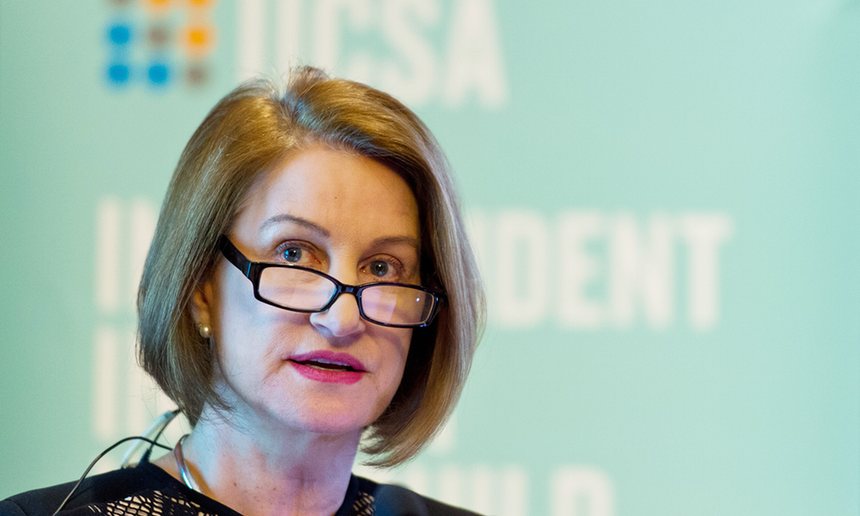Thereís Only One Way to Fix This Child Abuse Debacle Ė Listen to the Victims
By Deborah Orr
Dame Lowell Goddard, brought in to head the independent inquiry into child sexual abuse hasnít said much about why she has resigned, but criticism has appeared in the media of the amount of time she had spent abroad or on holiday. Maybe sheís unfeasibly thin-skinned. Perhaps she has been looking for some time for a plausible reason to bolt. MPs who yesterday demanded an explanation may get to the truth. Still, a year is good going for the New Zealander. The first appointee, Elizabeth Butler-Sloss, lasted less than a week. The second, Fiona Woolf, didnít quite make two months. Butler-Sloss resigned because it emerged that her brother, Michael Havers, had been attorney general during failed investigations three decades ago. Woolf resigned because she had social links to the family of Leon Brittan, whose own role at various times would necessarily be part of the investigation. Itís no coincidence that the inquiry has burned through three chairs already. The demands of the role dictate that any suitably experienced British head will be part of the establishment the inquiry is investigating. Yet itís hard to see how anyone who isnít British would have enough understanding of the general culture to grasp the enormity and complexity of the task. Or even grasp quite what the task actually is. Sure, you donít have to have been a child in the 1970s to understand quite how ruthlessly Jimmy Savile dominated an enabling media, or what a self-deprecating renaissance man Clement Freud appeared to be, or what a trusted politician Cyril Smith was. But it helps. These men were at the heart of the establishment for most of their adult lives. And there were many more, some now convicted, others dead, and others, probability dictates, still sauntering away from justice. Many of us grew up seeing or hearing active paedophiles being held up as success stories and societal exemplars. Itís hard to grasp that they were so visible, so respected, so rewarded. It would probably be simpler and more enlightening if someone were commissioned to investigate the factors that make the UK so extremely accommodating of child-abusing psychopaths, and so cavalierly indifferent to the testimony of their victims. I use the present tense advisedly. The inquiry is looking into institutional and historical abuse. All three of these men lived at the heart of politics and the media, well into the current century. No allegations against them were taken seriously until they were dead. Yet here we are, struggling and failing even to launch an inquiry into whether there was ever one identifiable and structural problem at all, back in the past, when we didnít know any better. Itís a bitter irony that the Office for National Statistics this week published its first ever figures on how many people have experienced sexual abuse as children in England and Wales. The figures are staggering, even if you thought you understood how widespread the problem was. Seven percent of adults taking part in the survey Ė 11% of women and 3% of men Ė reported that they were sexually abused. I can recall four instances myself, two by bad men, as they were called in those days, two by other children. I didnít tell my parents about three of my assaults. Two took place in the local woods, which I loved and didnít want to be banned from visiting. Parents are less casual nowadays about allowing their children to roam the countryside unaccompanied, but itís a shame that itís the freedom of children that is curtailed, and the fears of parents that are heightened, in order to lessen the risk. One of the assaults against me, at the age of 12, was in my home, by the son of a family friend, and I did tell. The boyís mother excused her son by saying that Iíd acted inappropriately myself, by pointing out a couple of cows and using the term ďmatingĒ earlier in the day. As victim-blaming goes, itís pretty rococo. My parents were upset, but they didnít know what to do about the matter, other than file it under Prank That Went Too Far. It certainly wasnít seen as a big deal. The only crumb of comfort to be taken from the statistics is that the problem does seem to be abating for more recent generations. Reports of sexual abuse are fewer among younger people. But even that, may be illusory. Itís hard to know, for instance, whether the knowledge of how much trouble perpetrators would now get into puts even more pressure on manipulated children to keep quiet. Britain, we know, is still brilliant at ignoring and excusing child abuse, as the effort it took to expose paedophile gangs across England so recently attested. And crime generally, of course, has moved on to the internet. The children who are being abused may well be being abused far more often, far more systematically and far more seriously. And many are likely to be being abused abroad. Disgusting sex tourism remains rife. This ill-fated inquiry more and more seems both far too sprawling and far too limited. Teresa May, home secretary when it was launched, and Amber Rudd, her successor, must make some decisions. The first thing, it seems to me, is simply listen to the testimony of the abused and record it. The nature and direction of further investigations can surely be dictated only by that. Already another year has passed in which abuse victims have been denied the chance to offer their narratives. Theyíre back at square one, as far as who to tell their stories to is concerned. Which means that institutional, historical abuse is still being enacted, and still very much in plain sight. The horror continues.
|
.
Any original material on these pages is copyright © BishopAccountability.org 2004. Reproduce freely with attribution.
